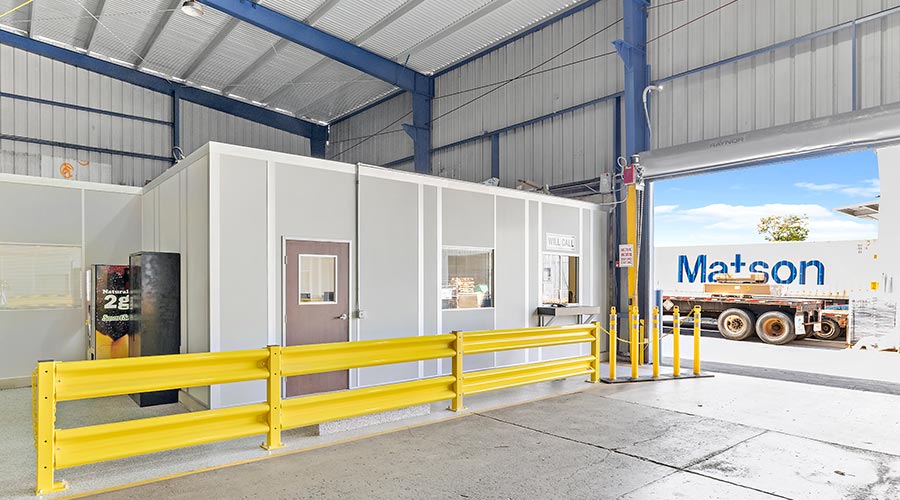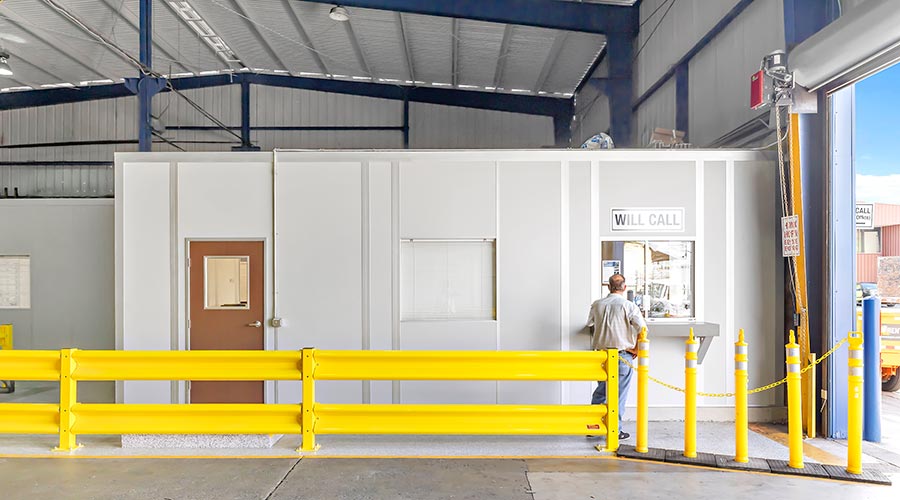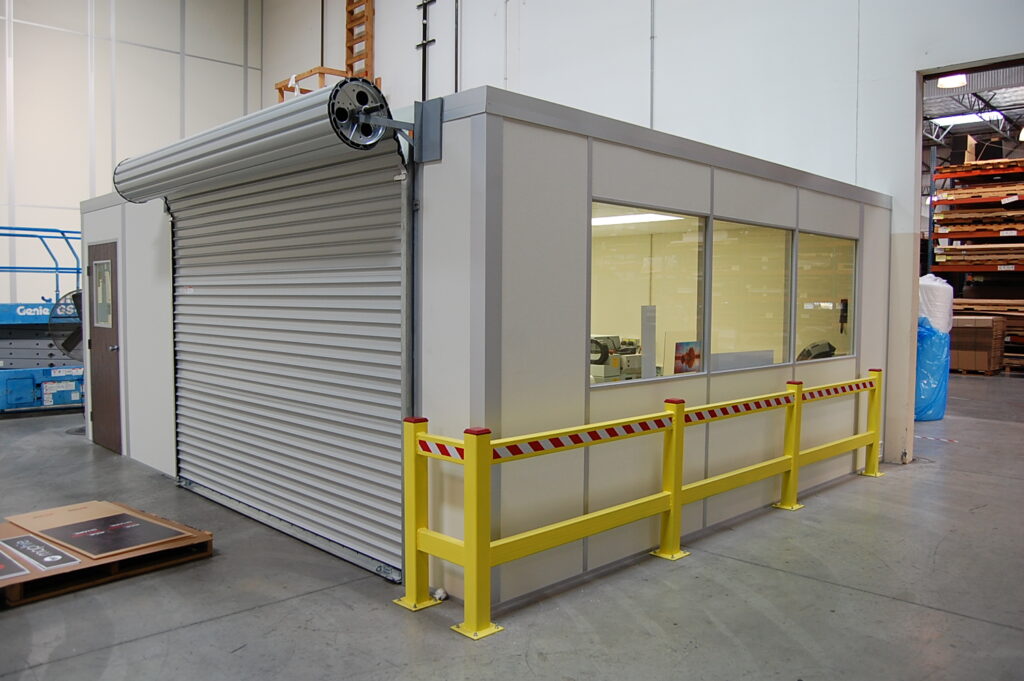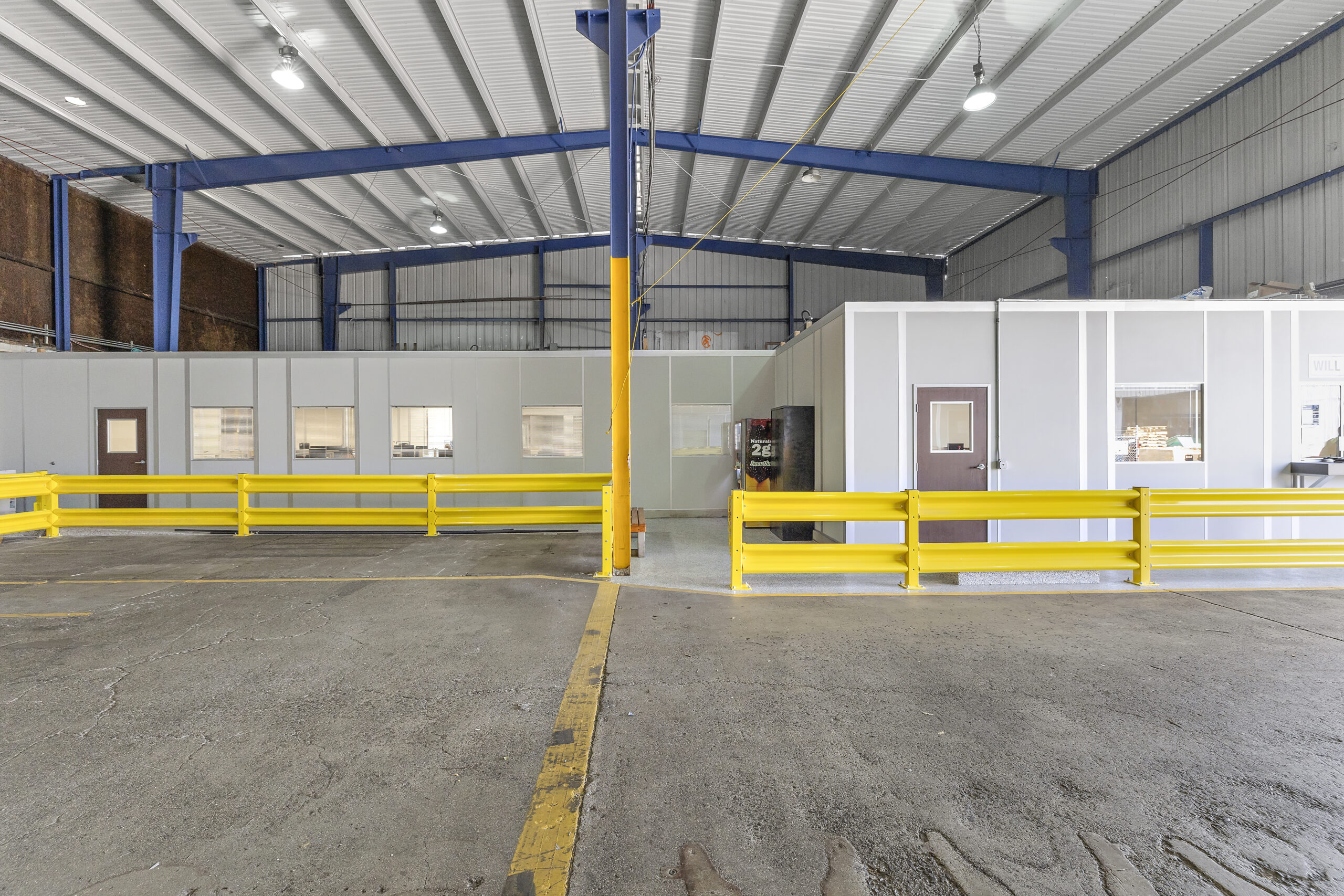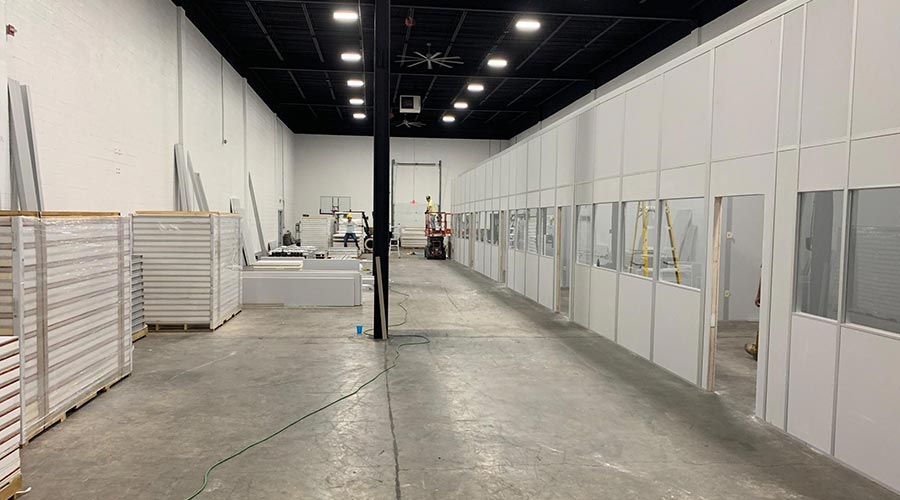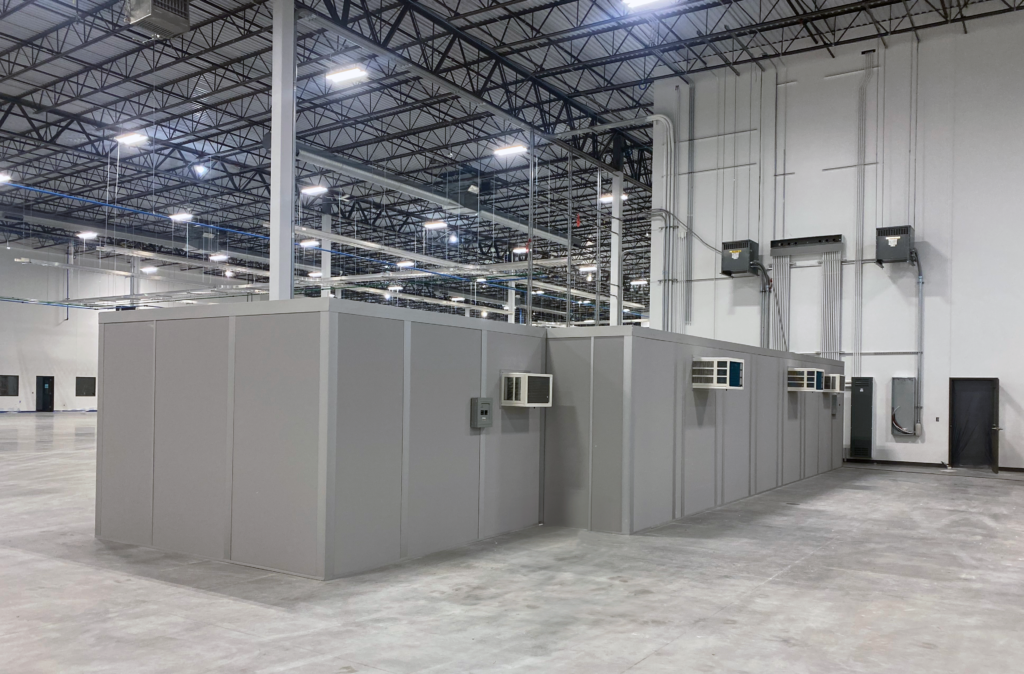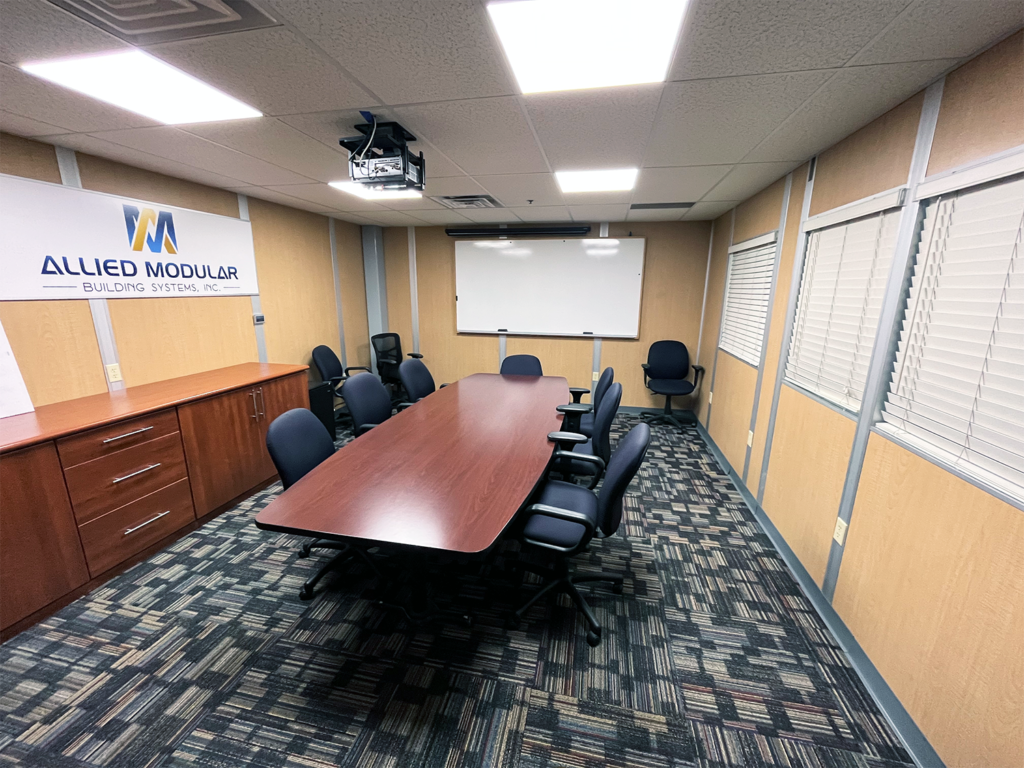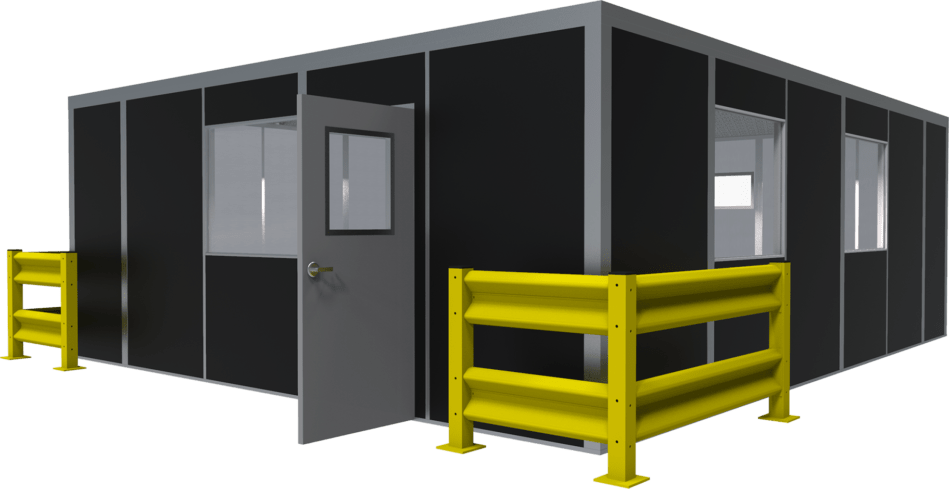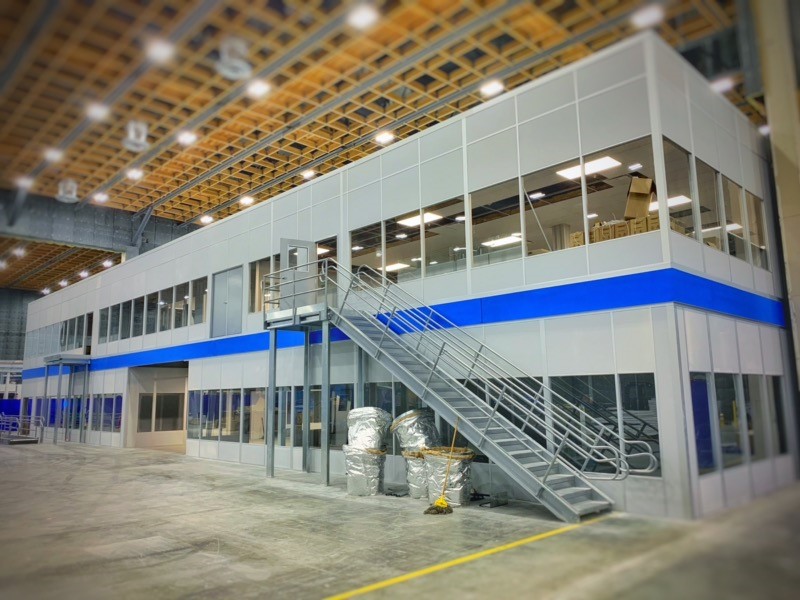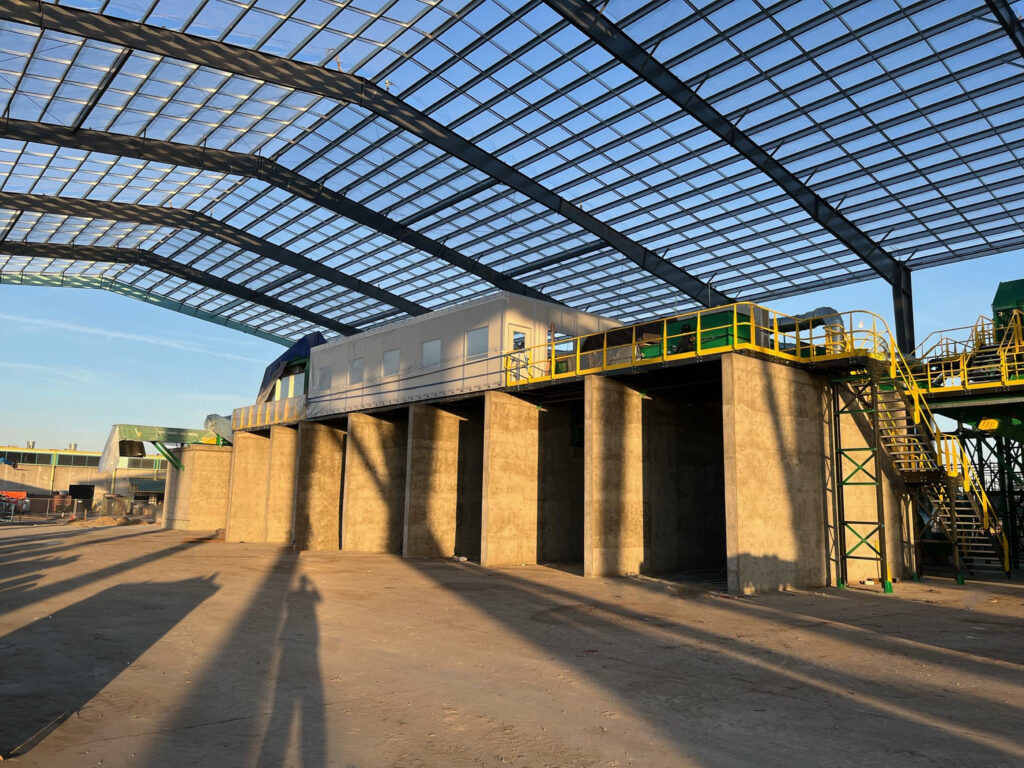Are you looking to improve your industrial workspace with an in-plant office? This guide is designed to help you understand what an in-plant office is, explore the available options, and show how they can benefit your business. In this article, we’ll compare the traditional and modular approaches to setting up these offices, highlight the benefits of going modular, and discuss various uses for these spaces.
What is an In-Plant Office?
An in-plant office is a workspace constructed within a larger industrial environment. These offices can be built inside a warehouse or manufacturing facility, or any other type of existing building. Often, businesses use these spaces for administrative purposes.
In-Plant Offices: Modular vs. Traditional Construction
If you’re considering setting up an in-plant office, you have two choices in how you can build it: the old-school, traditional way, or the newer modular approach. Choosing traditional construction methods might leave you knee-deep in planning or ongoing construction that can drag on for months, or even over a year.
If you’re looking to save on time and cost, however, modular construction may be a better solution. All of the office parts are made ahead of time (prefabricated) within a factory. Then, these parts (or modules) are shipped to your site and snapped together.
It’s quick, less of a headache, and kinder to your budget.
You don’t have to worry about quality, either. Modular offices are safe and durable. (We offer a 10-year warranty on materials and a 1-year warranty on labor, just to ease your mind.)
Let’s go over in greater detail a few of the benefits that modular in-plant offices offer.
What Benefits Do Modular In-Plant Offices Offer?
1. Quick Construction
Modular construction is fast. You can set up in-plant offices about 50% quicker than traditional methods. Plus, many of these units are ready to use right after installation, significantly reducing lead times.
2. Cost Savings
Opting for modular construction can lead to major cost reductions through:
- Shorter construction timelines, which cuts the overall project duration.
- Lower labor costs, as most of the building happens off-site.
- Efficient use of materials, which reduces waste and therefore costs. (We’re green!)
3. Flexibility
Additionally, modular offices are adaptable. Whether you need to expand, downsize, or tweak your layout, you can easily adjust these offices. Their portability also means you can move their location according to your shifting business needs, which protects your investment.
4. Minimal Operational Disruption
Since most of the construction occurs off-site, you avoid the usual disruptions associated with on-site building. This means your business can continue operating with little-to-no interruption during upgrades or installations. (No more hammer or buzzing sounds!)
5. Environmental Sustainability
Last but not least, modular offices are environmentally friendly. They use materials more efficiently and generate less waste than traditional construction. Reports suggest that modular construction can reduce waste materials like timber, cardboard, and concrete by up to 90%.
Diverse Applications
In-plant offices have a variety of applications. They can function as simple administrative spaces or complex facilities. They may also be used as:
- Employee Break Rooms: Cozy spots for your team to grab coffee and relax during breaks.
- Meeting and Conference Rooms: Perfect for brainstorming sessions.
- Training Rooms: Where your crews learn new skills or get up to speed on the latest industry standards.
- Project Management Offices: Planning hubs for your big projects.
- Quality Control Stations: Places where quality gurus inspect products and ensure that everything is top-notch before it ships.
- Separate Spaces: Modular offices can create a variety of separate spaces within a larger warehouse or manufacturing facility.
Why Choose Modular Over Traditional Construction
Modular construction is superior in terms of efficiency, cost, and flexibility. You can expand, relocate, or modify offices with minimal hassle. Compared to traditional construction methods, modular construction offers predictable costs, less messiness, and fast completion times, which make it particularly appealing for businesses. Given these advantages, it’s clear that modular is the future of all office and warehouse buildouts.
Ready to transform your workspace quickly and with minimal fuss? Allied Modular can help design a modular in-plant office that fits your exact needs. Get a free quote today and see how easy it is to expand your workplace facilities.

